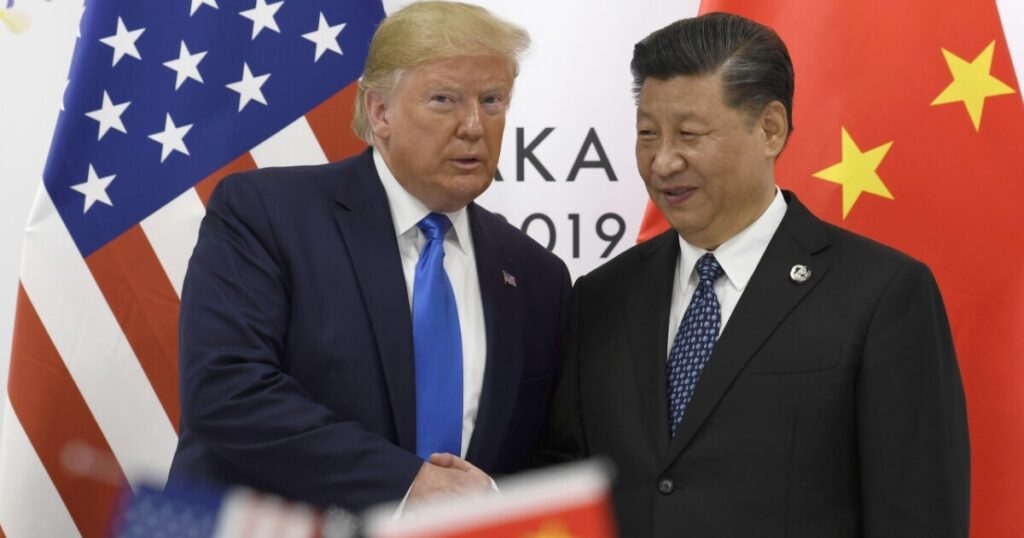BEIJING — The Chinese government sharply criticized the United States on Monday, accusing Washington of undermining a hard-won trade consensus by imposing new restrictions on advanced technology exports and threatening to revoke visas for Chinese students. The Commerce Ministry in Beijing issued a blistering statement condemning the U.S. actions as direct violations of the trade de-escalation agreement reached in Geneva just weeks earlier.

At the heart of China’s complaint are recent U.S. measures targeting the sale of artificial intelligence (AI) chips and semiconductor design software to Chinese entities. The ministry labeled the moves a serious breach of the trade consensus and warned of potential retaliatory steps to defend China’s interests.
“These practices seriously violate the consensus reached by both sides,” the Commerce Ministry said, referencing the China-U.S. joint agreement in Geneva, where the two nations pledged to reduce heightened tariffs and attempt to stabilize their trade relationship. Despite that pledge, tensions have resurfaced, exposing deep-rooted strategic and economic mistrust between the world’s two largest economies.
The 90-day truce brokered last month was intended to provide a window for more comprehensive negotiations. President Donald Trump had agreed to ease the latest round of tariff hikes—from 145% down to 30%—while Beijing committed to lowering duties on U.S. goods from 125% to 10%, according to U.S. Trade Representative Jamieson Greer.
China says it has honored those commitments, suspending reciprocal tariffs and rolling back non-tariff trade barriers. Yet, Beijing now accuses Washington of reigniting conflict with unilateral moves that worsen bilateral uncertainty.
“The United States has unilaterally provoked new economic and trade frictions, exacerbating the uncertainty and instability of bilateral economic and trade relations,” the ministry stated. “China has faithfully adhered to its commitments, but the U.S. continues to escalate tensions.”
Beijing also took issue with Trump’s rhetoric following the trade truce. On Friday, Trump publicly accused China of violating the Geneva agreement, posting on social media that Beijing had “TOTALLY VIOLATED ITS AGREEMENT WITH US,” and vowing to drop the “Mr. NICE GUY” approach.
In a follow-up Oval Office statement, Trump hinted at a potential call with Chinese President Xi Jinping but stood by his accusations. The president’s remarks appear to contradict the Geneva spirit of cooperation, further inflaming tensions at a time when both nations are vying for dominance in critical technological sectors.
Compounding the discord, the Trump administration last week announced it would begin revoking U.S. visas for Chinese students. The move threatens to disrupt the academic futures of more than 275,000 Chinese nationals studying across American universities. Beijing called the visa threat discriminatory and retaliatory, and framed it as part of Washington’s broader campaign to block China’s access to advanced technologies.
The United States has imposed multiple export restrictions in recent months, particularly targeting AI chipsets and the electronic design automation (EDA) software essential to modern chip manufacturing. These actions are widely interpreted as efforts to slow China’s progress in the global tech race and to maintain U.S. supremacy in the development of artificial intelligence and quantum computing.
At the geopolitical level, both countries remain at odds over issues beyond trade. China continues to expand its strategic ambitions in the Asia-Pacific, including efforts to assert control over Taiwan—a key U.S. partner and home to global semiconductor leader TSMC. Washington views these maneuvers as an effort by Beijing to displace the United States as the dominant force in the region.
In its Monday statement, China pledged to defend its economic and sovereign interests with “resolute and forceful measures,” vowing to hold the U.S. accountable for what it described as baseless and provocative behavior.
“Instead of reflecting on itself, the U.S. has turned the tables and unreasonably accused China of violating the consensus, which is seriously contrary to the facts,” the ministry said.
While business leaders and investors had hoped the Geneva agreement would signal a thaw in U.S.-China relations, this latest eruption of disputes over chips, students, and tariffs suggests that the trade truce may be more fragile than ever.



